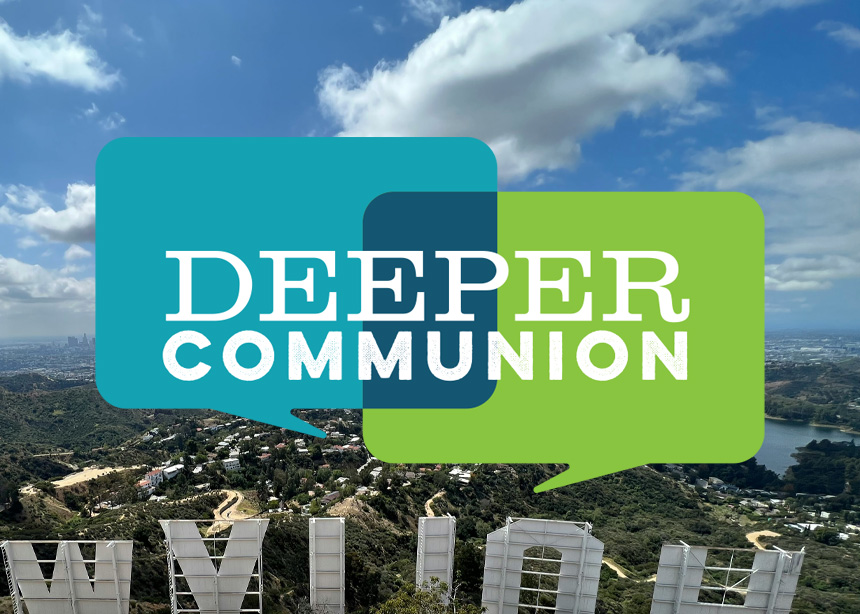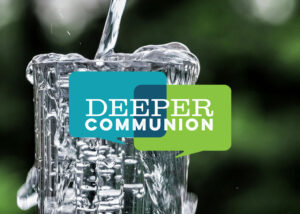So, a struggling actor and a pastor walk into a bar …
What sounds like a setup for a lame joke was my reality one afternoon in the Rockies last year. My wife was attending some meetings, and I came along for the ride. Another tag-along and I found ourselves meandering around town before landing on a patio pub.
I asked him what he did for a living and he, an actor, took me on a deep dive into the world of sets, screenwriters, Hollywood strikes, and the difficulties of breaking into a cut-throat industry. It was interesting. I don’t come across a lot of actors, and my new friend was a colourful conversation partner.
Then came the dreaded moment. Things could either get really interesting or seriously awkward.
“So, what do you do?” he asked.
I took a deep breath and said, “I’m a pastor.” I doubt he would have looked more stunned if I had told him I was a ballet dancer or a dog-food taster. He stared, grinned uncomfortably and blurted out, “Oh wow, well, forgive me, for I have sinned … like a lot.”
I laughed. (I’ve perfected the art of deflective laughter in these contexts.) He looked nervously at the beer in front of him. I don’t think he had ever met a pastor in the wild before.
He warmed up, though. “You know, I’ve been thinking that I need to pick a faith or something.”
I smiled. “A faith or something?”
“Yeah, I think I’m missing something spiritual in my life and, you know, I’ve been thinking that I need to get into God.”
I asked him if he had been raised in a religious tradition. He looked at me blankly. I inquired about his knowledge of Christianity. Nothing. He was well and truly a product of the secular age.
He told me a bit of his story— struggles with substance abuse, addiction in his family, a temper that could get the better of him. It wasn’t hard to detect a crisis of meaning and identity.
I mostly listened. It was clear he did not have many opportunities to explore these matters with others. I tried to encourage him to plug into a Christian community in his home city, somewhere he could connect with others on the journey of “getting into God.” I tried to dissuade him from the notion that “picking a faith or something” was a solitary task. He nodded at all the right times. But I don’t know how much of it landed.
As I thought about my new friend later, I reflected on two things. First, his comment: “I’ve been thinking I need to pick a faith, get into God.”
“Our hearts are restless until they rest in thee.” So goes the oft-quoted passage from Augustine. I believe there is something within each human being that knows or senses that there is more to this life, however inchoate and unformed this sense of more might be.
Second, my friend’s “forgive me for I have sinned” comment. While humorous and predictable, it also pointed to something real. Again, I think to be human is to know that we often miss the mark, that there is some standard we fail to meet, some flourishing (for ourselves and for others) that eludes us—and that we are at least partly to blame.
Both of his comments could simply be reflexive responses to the odd phenomenon of meeting this weird creature called a pastor. Maybe he was just saying things he thought I might want to hear. Maybe he was just trying to kill time before scurrying back to secular safety.
Maybe, but I don’t think so. I believe that the “God-shaped hole” is a thing. That to long for forgiveness is part of being human, not some kind of weirdly “religious” pursuit. However confusedly it comes out, however scrambled and incoherent our categories are in a secular age, we do long for a transcendent meaning that we do not have to invent for ourselves. Hearts get restless, after all. It’s how they’re made.
Ryan Dueck serves as pastor of Lethbridge (Alberta) Mennonite Church. He can be reached at ryanduecklmc@gmail.com.
Attentive by Cindy Wallace
I recently read Andrew Root’s 2022 book, Churches and the Crisis of Decline: A Hopeful, Practical Ecclesiology for a Secular Age. Root is a lot more excited about Karl Barth than I am, but he’s also a great storyteller. He encour- ages churches to worry less about our culture’s definitions of success and productivity and to focus on the wonder of God’s presence. Root calls for us to simplify our lives: pray, wait and be present to each other and our community, trusting that God will act.
A congregation of 200 can do this work. So can a congregation of 15, or an individual walking through a mountain town or going to work each day. I think this kind of watchful presence is what Ryan’s story is about.
There are many reasons why folks may be wary of religious people, and especially religious leaders. But the humble way of Jesus—prayerful, attentively curious, not taking ourselves too seriously—offers a particular chance to connect. It can happen in a church building or in a waiting room or on a pub patio. Maybe we’re a little embarrassed, a little shy, but we find ourselves talking about those deep longings. We look for God together.
Cindy Wallace is professor of English at St. Thomas More College at the University of Saskatchewan.
Inward by Justin Sun
As a fellow pastor, I’ve also had the (dis)pleasure of being in a new situation and sussing out whether or how to reveal my occupation. On many occasions, I’ve had conversations with strangers, for extended periods, without revealing I’m a pastor. I don’t necessarily have a problem with it; I just want to be sensitive, knowing it can be fraught where I live, often for good reasons.
I get where Ryan’s coming from in his reflections about hearts and forgiveness. At the same time, I feel that the awkwardness of encountering pastors is partly a sign of intergenerational religious struggle. A friend who’s doing his thesis on religious trauma writes that survivors often have difficulty reintegrating into religious communities, engaging in spiritual activities, or even rekindling any desire for spirituality. I wonder if difficulties encountering pastors are part of a larger struggle with the traditions that have been handed down generationally.
With that in mind, situations like Ryan’s turn me inward, wondering how to cultivate spaces—transformed from the ones we’ve inherited—that allow those who long for more to recognize that Christians (read: Jesus) are a good companions on the quest for more.
P.S. Ryan, if you encounter Oscar Isaac in your Hollywood travels, send him my way please!
Justin Sun recently began studies at Vancouver School of Theology/Vancouver Coastal Health following pastoral work in Richmond, B.C.
Hesitation by Anika Reymar
These days, I find myself in conversations with people who are deeply invested in finding solutions to complex social and ecological crises.
Ryan’s story of encounter has me thinking about recent conversations where I’ve been “outed” as a person who studies and identifies with Christianity. Like Ryan, I enter these conversations with some trepidation. Unwelcome faith-talk can lead to visceral discomfort, and even harm.
But in the conversations that I’m thinking of, my presence as a person of faith has done something else; it’s given others permission to voice their own questions about meaning and purpose.
Does my work matter? Is it possible to find solutions to huge crises without also tending to people’s spirits? What does spiritual care look like if I don’t believe in God? Does any of this have meaning?
As I listen, I often notice “God-shaped holes.” But I remain hesitant to speak about this noticing for fear of being preachy, or positioning God as a simple solution to complex, systemic problems. I’m left wondering: how do I testify, through my words and my life, to the God who creates meaning with us in our deepest longings? Are our churches places where people can recognize this shape of God?
Anika Reynar works in Boston as a facilitator and mediator in environmental disputes.








Leave a Reply
You must be logged in to post a comment.